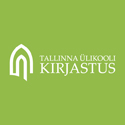„Rohgem ei tiija mina teile kirjuda”. Kirjavormelid ning peresuhete kajastused Jakob Ploomi sõjakirjades [I don’t know what else to write to you” Letter formulas and the coverage of family relations in Jakob Ploom’s war letters]
Abstract
World War I caused an unprecedented outpouring of letters in Europe and led to even poorly educated peasants writing in order to stay in touch with their families. From the correspondence of Jakob Ploom (1882−1915?), who emigrated from Võrumaa to the outskirts of Moscow, where he was mobilized into the army, 29 surviving letters represent an older epistolary tradition. These are not intimate documents but directed at a broader family circle. The letters are short and written in a mixture of the South- and North-Estonian languages. The sentences lack punctuation and are incomplete. From letter to letter the same or very similar phrases and sentences about the same topics occur. In addition to the formulaic introductions, long, very similar farewells, and overviews of Jakob’s health, among the most popular sentences are those that represent the difficulties of writing letters. The sentence „Rohgem ei tiija mina teile kirjuda” (“I don’t know what else to write to you”) or its variants can be found 26 times; these key phrases show Jakob Ploom as a passive soldier, lacking in knowledge and having difficulties expressing himself. Using standard formulas probably helped the inexperienced writer to organize his thoughts in writing, providing a safe and easy way to fill in blanks in the unsafe literary (and real) world. Both the difficulty of expressing himself in writing and the dire situations experienced on the battlefield made self-expression extremely difficult. Jakob Ploom’s boring, uninformative, and impersonal literary heritage, rich in formulas, provides an exciting corpus to examine a distinct rhetoric and mentality. These letters provide a grass-roots view of war and show how peasants moved from the oral world to the literary culture due to the necessity created by the war.
Keywords
soldiers’ letters, World War I, epistolary practices, under educated writings, South-Estonian language, Estonian written language
Full Text:
PDFRefbacks
- There are currently no refbacks.
Published by / Kirjastaja:

ISSN 2504-6616 (print/trükis)
ISSN 2504-6624 (online/võrguväljaanne)
